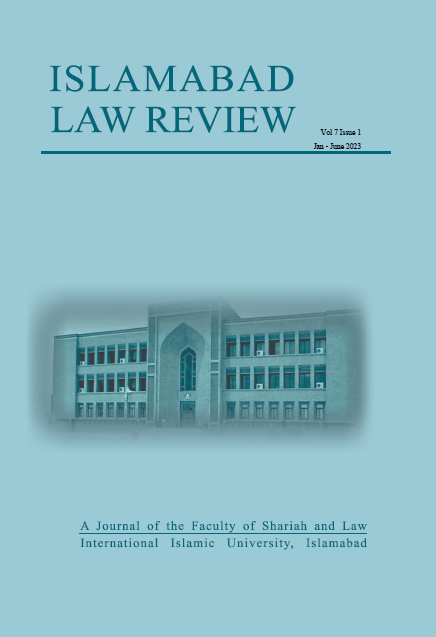Role of Shell Companies in Money Laundering Schemes: Identifying and Mitigating Legal and Technical Challenges for Banks in Pakistan
الملخص
The integrity of the financial system is significantly jeopardized by money laundering both in Pakistan and abroad. Shell companies are non-trading corporations without a physical location, ongoing business activities, or staff members. While they are often established for legitimate reasons, such as holding assets or managing investments, their lack of transparency and complex ownership structures make them vulnerable to exploitation for money laundering purposes. This article provides insights into how banks in Pakistan can identify and mitigate the associated risks to ensure compliance with anti-money laundering (AML) regulations. It investigates how shell companies are exploiting loopholes in the legal frameworks in developing countries like Pakistan where banking institutions have weaker compliance rates with the regulatory frameworks. To address this issue, a qualitative doctrinal research methodology, based on documentary analysis is employed. Accordingly, this paper critically examines the national statutes, regulations, and policies in Pakistan, and other existing data relating to role of shell companies in money laundering schemes. The analysis concludes that by adopting a proactive and collaborative approach, banks and regulatory authorities in Pakistan can effectively combat financial crimes and threats posed by the shell companies to safeguard the integrity of the financial system.


